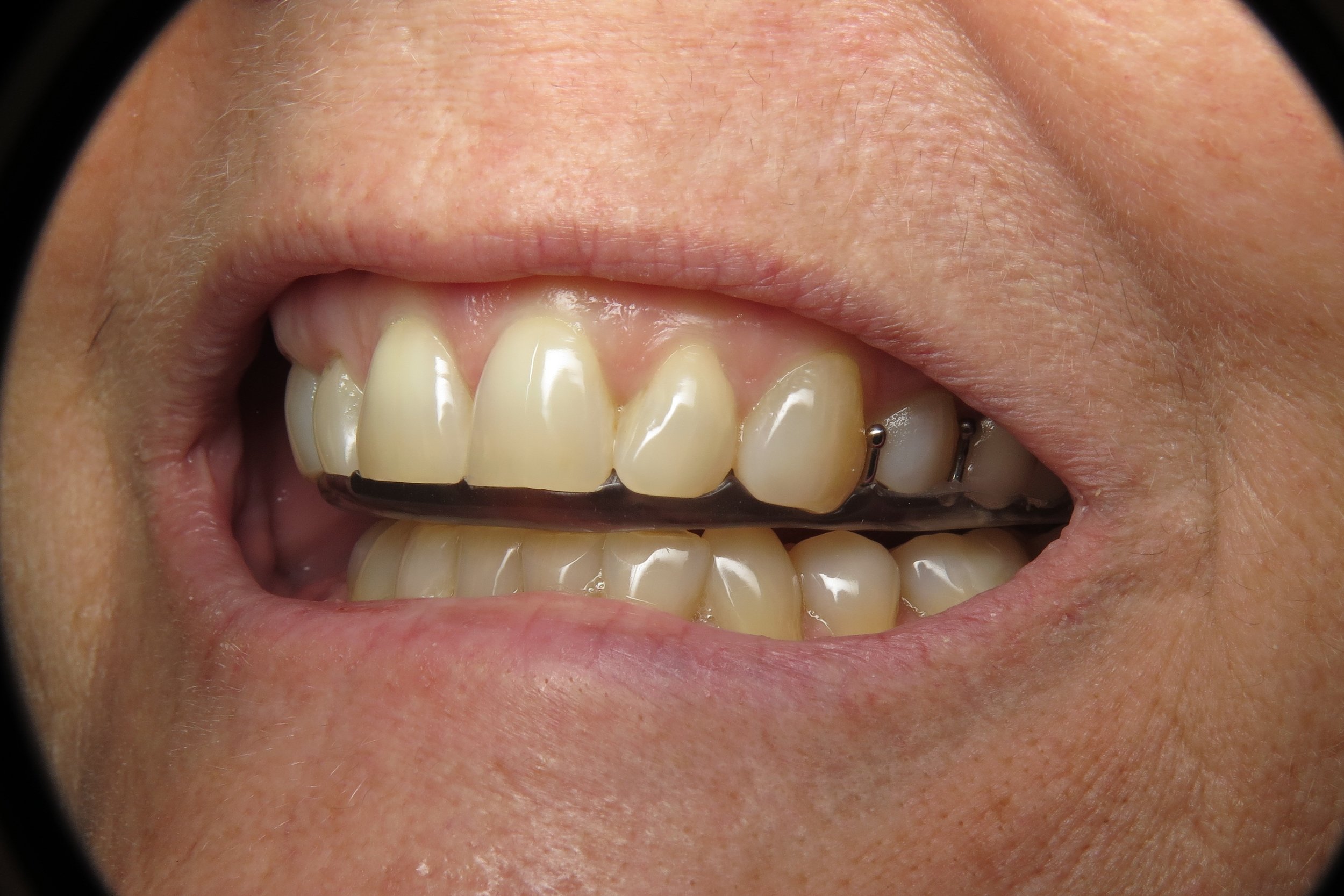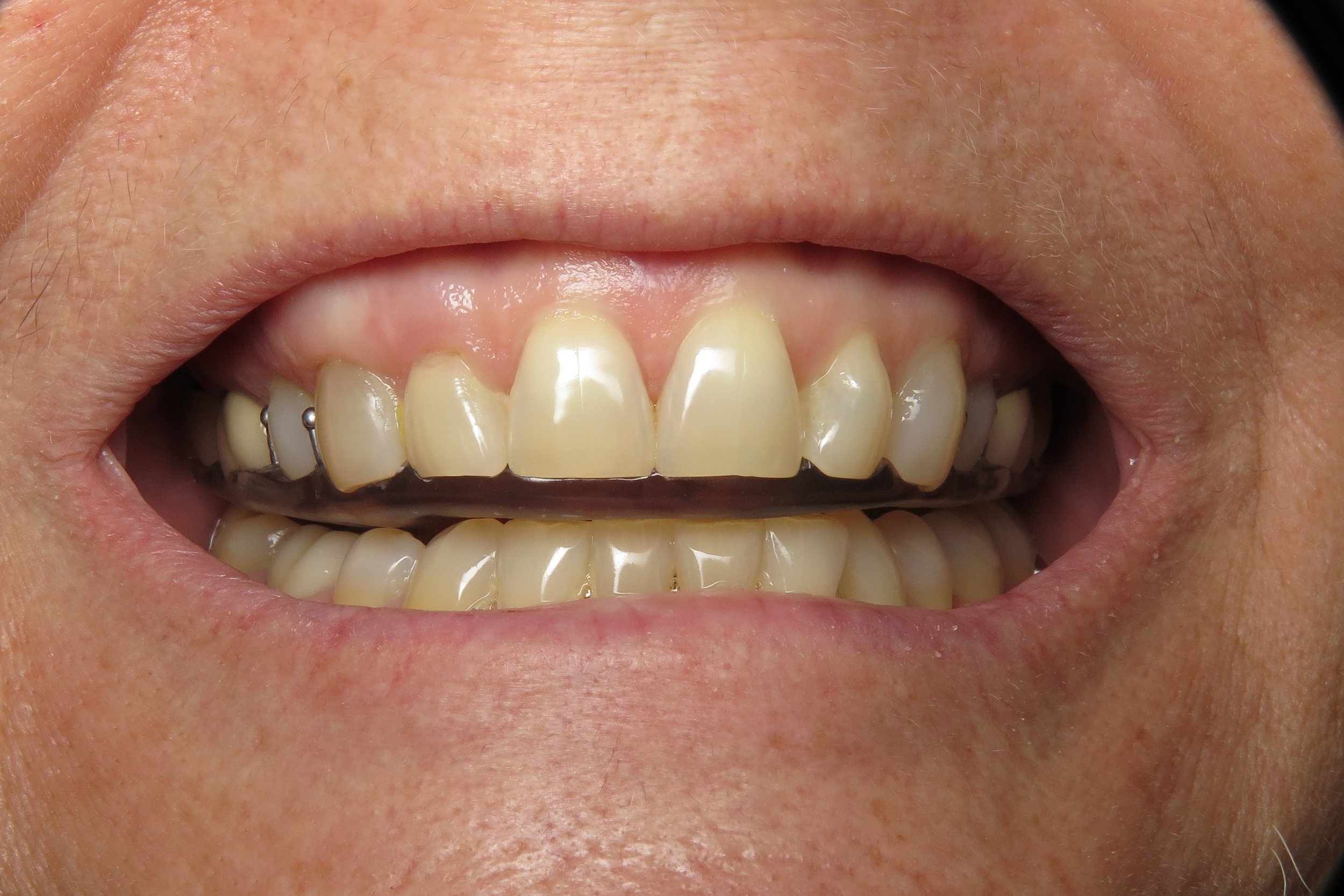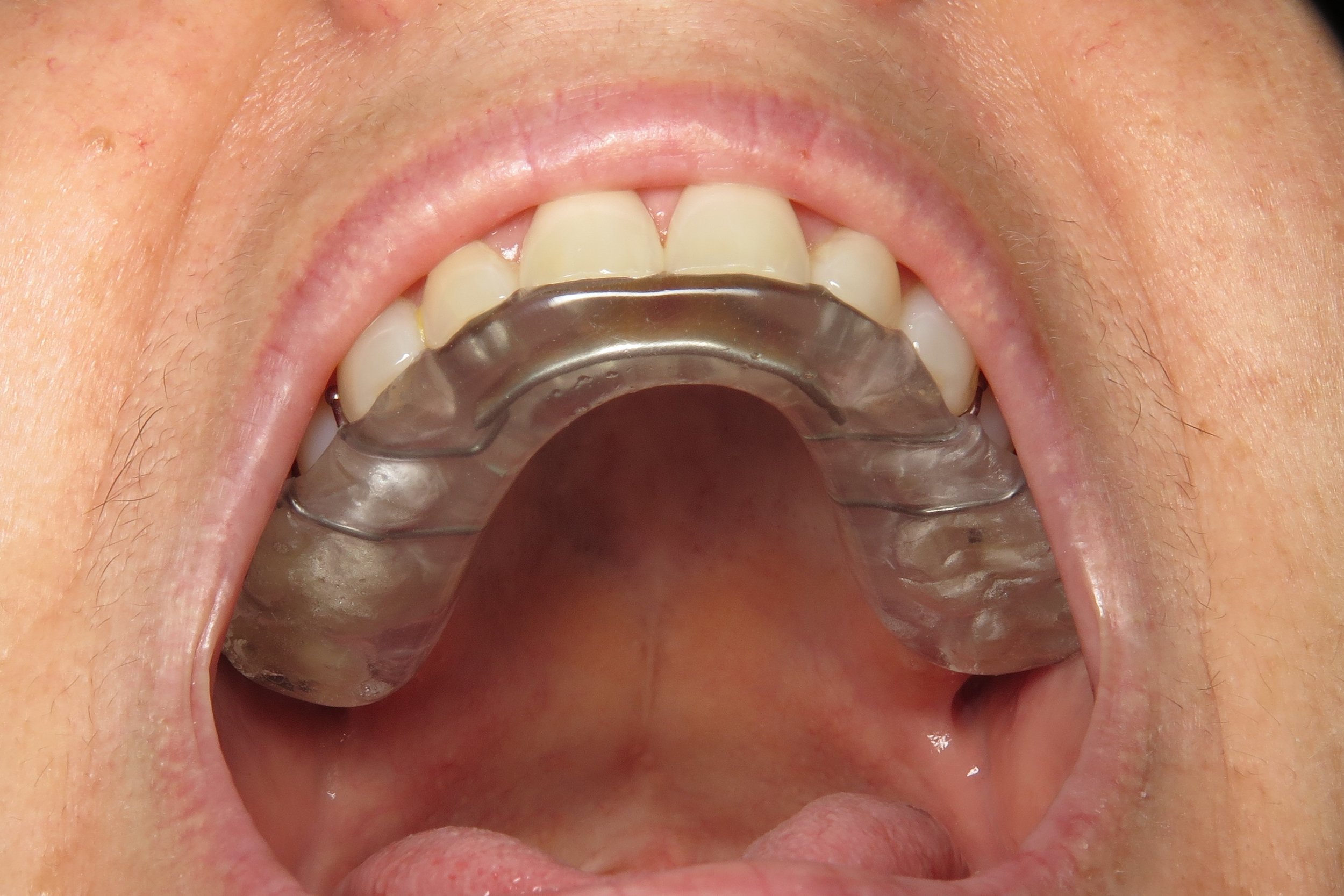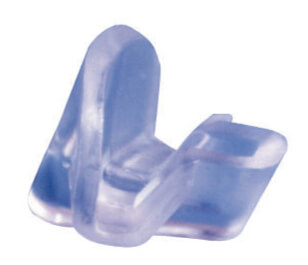Teeth Grinding (Bruxism)
Two main types of night guards used to protect teeth
Full arch
Anterior only like the NTI
Full arch
Full arch night guards are used to protect teeth from the damaging effects of grinding. For people who grind their teeth at night and do not wake up with headaches, this is a very effective design to help treat the issue.
NTI Tension Suppression System
The FDA has cleared for marketing for the first time, a device that prevents medically diagnosed migraine pain, tension-type headaches, and TMJ disorders, without the use of drugs or surgery. This is accomplished by wearing the NTI which will cause a reduction of trigeminally innervated muscular activity. In a recent study 82% of NTI users had a 77% reduction in migraine events. NTI stands for Nociceptive Trigeminal Inhibition.
For simplicity sake there are two main reasons people wear night guards:
Bruxism (Teeth grinding)
Clenching
For years the most commonly prescribed night guards were full coverage splints that were placed over all the teeth on either the upper or lower arch. This type of splint works great to protect the teeth from damage that can occur from bruxism or grinding. It however does not decrease the clenching force that is applied. The reason this is so important to note is because many problems such as migraine headaches and TMJ disorders occur because of muscle hyperactivity that is present during severe clenching episodes. That is why some patients still suffer from headaches and TMJ disorders even after wearing a full coverage splint.
The NTI in place. Only a small point on the front teeth is able to contact.
As stated before many migraine headaches and around 98% of TMJ pain cases have origins in muscular hyperactivity.
The benefit the NTI has over traditional full coverage night guards is that studies have shown that when only the front teeth are in contact the muscles that close the jaw and clench are only able to produce about 1/3 the normal force. This allows the muscles to relax and the symptoms to subside. If a full coverage night guard is used, the back or posterior teeth are still able to contact which allows 100% clenching force to occur. The teeth will be protected from any bruxism or grinding, but the clenching force will not be decreased. The NTI however is not only effective in protecting the teeth during episodes of bruxism, but it is also effective in decreasing the ability to clench with maximum force. This is why the NTI has worked for 1/2 million people world-wide who have suffered from migraine headaches and TMJ pain.
With the NTI in place only a small point on the front teeth is able to contact. The smaller the contact point the smaller the clenching force.
Click icon to go to headacheprevention.com and learn about all the benefits of the NTI.
What grinding or bruxism does to teeth?
The following photos are of patients Dr. Johansen has seen that have damaged their teeth while grinding at night. Night guards prevent this from happening. Remember that it is always easier and less expensive to prevent a dental problem than to fix one. If you notice wear on your teeth call for a free consultation. Don't let your teeth wear out before you do! Protect them with a night guard.










